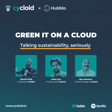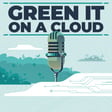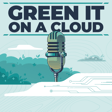
Ep 2. ESG Strategies and its positive impact on business
In this episode of "Green IT on a Cloud," join Donal Daly, the visionary founder of Future Planet, as he takes us on a compelling exploration into the realm of ESG (Environmental, Social, and Governance) strategies. With a lens broader than just Green IT, Daly seamlessly weaves together examples from various industries, making the intricate concepts of ESG accessible and relevant to our own field.
From demystifying the disparity between ESG reports and statements to shedding light on the profound ramifications of Western-centric practices on our global ecosystem, Daly guides us through a journey of awareness and conscious decision-making. Through his insightful commentary, listeners will come to realize that effecting positive change is not only feasible but can also yield tangible benefits for the bottom line of businesses.
Tune in as we uncover the intersection of sustainability and profitability, discovering that the path to a greener future is not only essential but also financially advantageous. Prepare to be inspired and empowered to embrace ESG principles within your organization, forging a path towards a more sustainable and prosperous future.


